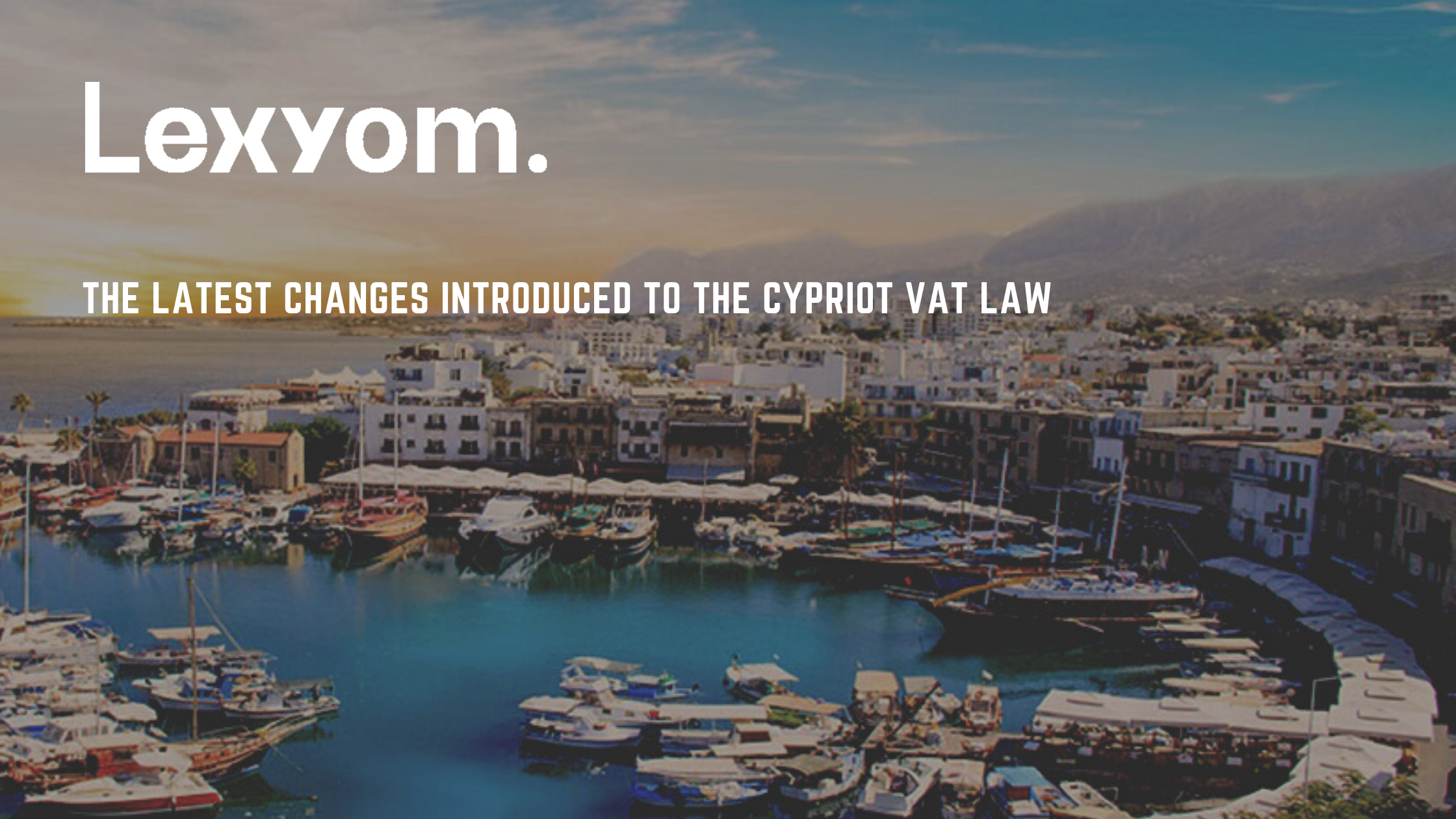What are the latest changes introduced to the Cypriot VAT Law?
As of 20 August 2020, changes have been introduced to the Cypriot VAT law.
Such changes involve new definitions, higher penalties, new articles, new deadlines, VAT reductions to certain services, and more changes that we will tackle in this article.
Before mentioning the changes introduced to the VAT law, it is important to mention that some of the reforms had retrospective effects.
Changes introduced to the Cypriot VAT law:
- Definition of the legal person: the new change clarified what the term “legal person” includes. It includes a company, a partnership, a club, and an association. With this change, the legal person’s definition comes in conformity with its definition under the Cypriot Income Tax Law.
- Definition of renovation: with the measure, renovation now includes old private residence’s ability to qualify for a reduced 5% VAT rate. To consider a private residence old, it should be used for a term of at least three years.
- Measures on VAT refunds: whenever income tax returns are not submitted by the date of submission of the VAT refund claim, VAT refunds will be suspended. No interest should be paid during the suspension period.
- Applications for VAT refund can be submitted within six years, starting at the end of the tax period. No exceptions are allowed except with the Tax Commissioner’s approval.
- Extension of article 11B scope of application: with the measure, this article’s provisions apply to any person providing certain services and goods, when applicable in the construction industry.
- Such services include construction services, repair services, demolition services, etc.
- Thus, the services that a non-registered VAT carpenter provides now fall under article 11B.
- Article 11E: the change in the VAT Law introduced a new article, “article 11E”.
- This article relates to the reverse charge plan. It provides that a buyer must account for VAT whenever he or she is a taxable person when the acquisition of the goods is made. The seller will not charge VAT in this case.
- When the buyer is not a taxable person, the purchases done will be used to determine whether he or she has exceeded the threshold.
- The products or goods that fall into this article are mobile phones, integrated circuit mechanisms, like microprocessors and central processing units (CPUs), before integrating into end-user products, game consoles, laptops, and computers (PC) tablets.
- Deadline to object: following article 52A, an objection may be raised within 60 days of the Tax Commissioner’s tax assessment and other related decisions.
- Raise in penalties: the penalty of failing to submit a VAT return within the deadline increased from 51 euros to 100 euros.
- When the reverse charge plan is not correctly applied according to article 11, a penalty of 200 euros per VAT return is applied. The total penalty cannot exceed 4,000 euros.
- Change to schedule 1: with the amendments, schedule 1 now includes provisions relating to the registration and non-registration of “non-established” persons carrying out activities taxed in Cyprus.
- A non-established person is the one that carries out activities in Cyprus without having a business establishment or a fixed establishment in Cyprus that is related to the activity being carried out.
- Change of schedule 6: with the measure, international passenger transport within Cyprus is subject to a 0% VAT rate.







